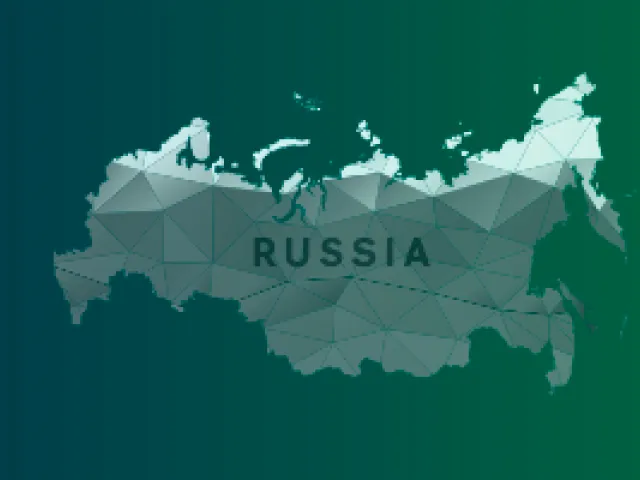Table of contents
In Russia’s complex regulatory environment, self-service troubleshooting capabilities are key to helping your serialized operations and supply chain teams ensure that products flow efficiently from manufacturer to patient, without costly disruptions, delays, or regulatory bottlenecks, according to Milica Janjic, a TraceLink Solutions Consultant and serialization expert.
regulatory environment, self-service troubleshooting capabilities are key to helping your serialized operations and supply chain teams ensure that products flow efficiently from manufacturer to patient, without costly disruptions, delays, or regulatory bottlenecks, according to Milica Janjic, a TraceLink Solutions Consultant and serialization expert.
Serialized Product Intelligence is a new solution that enables you to proactively monitor and troubleshoot serialized operations, get more value from serialization investments, and gain a competitive advantage that stems from your ability to maintain control despite Russia’s immense regulatory complexity.
In this interview, Janjic explains why self-service troubleshooting and root cause analysis capabilities are a critical necessity for supply chain risk management in Russia’s demanding regulatory market—and how Serialized Product Intelligence can provide business value that spans your entire organization.
Why is it important for serialized operations and supply chain teams to have self-service troubleshooting capabilities in Russia’s regulatory market?
Milica Janjic: The ability to conduct self-service troubleshooting and root cause analysis is important in every regulatory market. But it’s especially important in Russia. Serialized operations teams and other business users need self-service troubleshooting capabilities because IT departments are often extremely busy with critical projects and cannot be overburdened with serialization issues that require extensive manual work and impact productivity.
Some of the top problems you can troubleshoot in Russia with Serialized Product Intelligence are related to ensuring that you have correct serialization, correct quantities in aggregation, correct reports, as well as the correct sequence of reports.
Russia’s serialization and track-and-trace regulations are many times more complex than any other regulatory market. By comparison, in the European Union (EU), the majority of time you will only need to submit the EU Commission Create Product Pack Data Report. In Russia, you will need to file about 20 reports on average. As a result, there are many more chances for compliance problems to arise.
Russia is actually quite unique because it’s a true track-and-trace compliance system, which means you have to follow the product every step of the way from its inception to its decommissioning, and every step has to be successfully reported. Whenever the product changes hands or changes location, you have to report on that. The number of obstacles and the amount of failures that you might encounter in Russia before the product actually reaches the patient is quite high.

Can you provide some examples of typical compliance problems that arise in Russia that you can quickly troubleshoot with Serialized Product Intelligence?
Janjic: Some of the top problems you can troubleshoot in Russia with Serialized Product Intelligence are related to ensuring that you have correct serialization, correct quantities in aggregation, correct reports, as well as the correct sequence of reports. There are many examples I could cite.
Let’s say, for example, you have a report failure because serial numbers scanned during a compliance check do not match the serial numbers previously reported to the Russian Drug Circulation Monitoring System (MDLP). That would be one issue where self-service troubleshooting would be critical and would help you to quickly mitigate or avoid a disruption or costly delay. Additional issues often arise include missing serial numbers and incorrect aggregation data.
For most companies today, solving compliance problems that arise in Russia is very frustrating, painful, and time-consuming. You have to download various .XML files from the MDLP to identify what product, lot, or report is affected. Those files must then be manually cross-checked against various files downloaded from the TraceLink Life Sciences Cloud to investigate the issues. It can be a highly error-prone process because it’s all pretty much done manually and the MDLP is difficult to navigate. Serialized Product Intelligence pulls all this data together for you.
How does Serialized Product Intelligence provide business value beyond the four walls of the serialized operations team?
Janjic: Serialized Product Intelligence can provide value for business users across your organization—not just the serialized operations team. For example, let’s say you have an account manager for the contract manufacturing organizations (CMOs) you work with for Russia. That person is responsible for ensuring that the correct amount of product is being produced and that all of the default processes are running smoothly.
Serialized Product Intelligence enables them to monitor the activities of these CMOs to help ensure that there is enough product being produced and serialized correctly for Russia, and to troubleshoot issues when they arise. Serialized Product Intelligence can help them improve product availability in the Russian market.
Do you have any advice for supply chain teams as they start looking at Serialized Product Intelligence for self-service troubleshooting?
Janjic: For many pharma companies, Russia is a very important marketplace, and so it’s important to take steps to ensure that serialized operations run efficiently, correct quantities of products are produced and shipped, and disruptions and shortages are avoided or mitigated. Russia’s regulations are relatively new, and many companies are still making their compliance plans. So, I would start using Serialized Product Intelligence sooner rather than later. As with any software, the more you use it, the more efficient you will become.
Organizations can learn more by visiting our new Serialized Product Intelligence microsite, which includes additional details about self-service troubleshooting, proactive supply chain monitoring, and other key Serialized Product Intelligence capabilities.

Achieve operational excellence in Russia with Serialized Product Intelligence
With Serialized Product Intelligence, you can establish proactive supply chain monitoring and self-service troubleshooting capabilities in the Russian regulatory market, that will enable you to rapidly investigate serialization process exceptions and answer important questions, such as:
- Which lots were targeted for the Russian market during a specific time period?
- Do serialized operations reports and compliance reports match?
- Were any expected compliance reports omitted?
- Do our compliance reports in TraceLink match what is displayed in the MDLP?
- Has every serial number in a batch been properly communicated to the MDLP?
- Why did a specific report fail, and which products are affected?
Serialized Product Intelligence provides end-to-end visibility into the event history of serial numbers, saving time and resources needed to compile the data manually in Russia and every other regulatory market where you do business.









